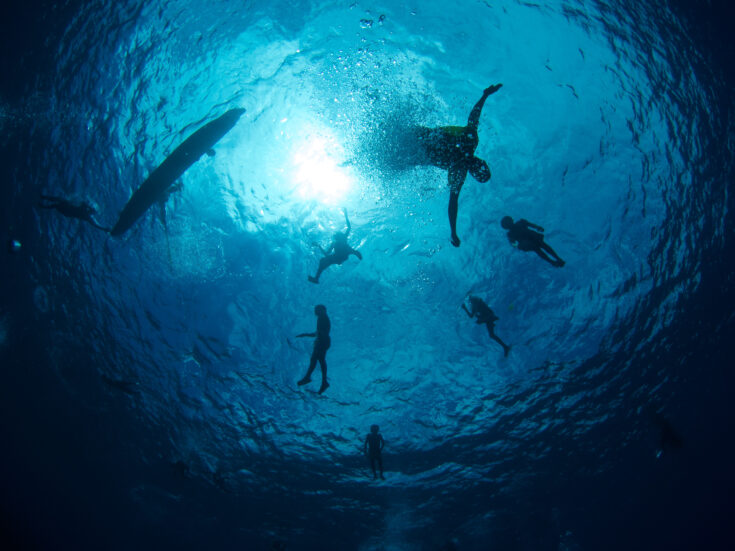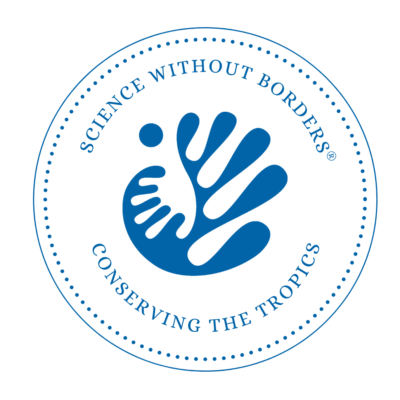An introduction to the newest project led by the Khaled Bin Sultan Living Oceans Foundation

The Science Without Borders®: Conserving the Tropics project was proposed to help address the United Nations Ocean Decade Challenge to “understand the effects of multiple stressors on ocean ecosystems, and develop solutions to monitor, protect, manage and restore ecosystems and their biodiversity under changing environmental, social and climate conditions.” Our project focuses primarily on conserving tropical marine ecosystems, including coral reefs, seagrasses, and mangroves, as well as incorporating measurable actions that communities can use to reach their conservation goals.
On the Global Reef Expedition, we saw that, particularly in Small Island Developing States (SIDS) and Least Developed Countries (LDC), there was not only a lack of scientific information, but also a lack of ocean literacy, particularly regarding local ecosystems. The Science Without Borders®: Conserving the Tropics project will leverage our existing scientific data and outreach programs, partnering with universities, non-profit organizations, governments, and communities to help raise awareness and improve conservation of these fragile marine ecosystems. We will be addressing not only the lack of scientific knowledge, but also use outreach programs to improve community wide ocean literacy to help influence behavior change.
To help communities expand their scientific knowledge and science-based management solutions, KSLOF and partners on this project will team up with local scientists, conservationists, and marine managers to incorporate low- and no-cost products into their conservation plans. Currently, two of the partners on this project, the University of Miami and Pacific Blue Foundation are working with KSLOF, using the data collected on the Global Reef Expedition and our scientific expertise, to develop products that can improve and be easily incorporated into tropical marine monitoring and management plans. Currently, the University of Miami, with help from KSLOF scientists, is developing a novel coral reef resilience model that will provide insight into regions of the world that may be more resilient to changing conditions that coral reefs are facing. By bringing this model to communities, we can incorporate historic and newly collected local data to help guide marine spatial planning and use monitoring information to improve its accuracy. Our partners at the Pacific Blue Foundation have been working to develop CoralNET, a computer-based learning program that allows for fast, accurate analysis of photo transects, a common method used for rapid reef assessments. This program has been trained using data collected on the GRE as well as input from KSLOF scientists to provide fast, accurate assessments of the benthic habitats. These assessments will provide managers with useful data and information that can help them better manage their coral reefs.
In addition to the scientific expertise and tools, we’ll also be working closely with communities to help increase ocean literacy. From experience, we know that using a co-designed approach is critical in achieving successful conservation as we saw this first-hand on the Global Reef Expedition. KSLOF prioritized not only collecting scientific information, but also sharing that information with stakeholders of all ages and genders. We hosted education and outreach programs, reaching thousands of people in each of the countries we visited. As a result, we have already developed a Mangrove Education and Restoration program that has been implemented in Jamaica in partnership with the Alligator Head Foundation, and in The Bahamas. We have also created an online Coral Reef Ecology Curriculum that is freely accessible and being used globally. The Science Without Borders® project will allow our team and partners to expand these programs and create new ones that target community members of all generations. While helping to raise a new generation of ocean advocates is critical in the longevity of conservation efforts, there is a lack of information being shared at the community level. By reaching all generations, we will be able to inspire conservation at all ages and encourage measurable behavior change that will have long lasting benefits.
We are currently actively seeking partners and funders to support our work on the Science Without Borders®: Conserving the Tropics project. We are particularly interested in working with local communities and conservation organizations in Fiji, Tonga, and The Bahamas. If you would like to help support this work, we hope you consider joining the Science Without Borders® Society, which provides funding for this project.
The Science Without Borders®: Conserving the Tropics project has been endorsed by the United Nations Decade of Ocean Science for Sustainable Development.

